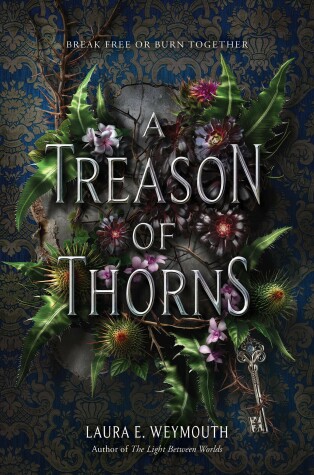
Briana @ Pages Unbound
The first half of the novel felt incredibly slow to me, as the protagonist fixates on a few simple ideas that get repeated over and over: she grew up in a Great House she expected to be Caretaker of when she was an adult, she loves her Great House, she wants her Great House to be happy and well, etc. and so forth. I think this portion of the novel could have been cut down considerably to help get to the heart of the story.
Strangely, however, what exactly a Great House is is never fully explained. There is a scholar in the novel whose area of expertise is Great Houses, both the ones in England and ones in other countries, so readers do get glimpses of their history, but the whole matter remains incredibly vague. They’re just…magical houses (and grounds) that seem to have always been around and that somehow work their magic on the surrounding land. If the House is doing well, the land and people flourish. If not, crops fail, animals die, people get sick. That’s basically all readers know. Why the Houses exist, what powers or motivates them, what their investment is in the surrounding land, and a number of other questions are left unanswered. And while I can normally appreciate some ambiguity in fantasy to create a sense of mystique, the vagueness feels off in A Treason of Thorns because the author seems to have settled on “I am writing about a magical house!” as the crux of the book. If the answer to the question of, “What is the book about?” is “a magical house,” then I expect to have a fuller understanding of said house.
Weyworth does attempt to give readers an interesting protagonist to live in and deal with the house. Her loyalty to it is ferocious, as is her loyalty to the boy she grew up with—now an attractive young man she has not seen for the past several years. Readers will likely admire her dedication and generous spirit. They, like the people in the character’s life, simply have to come to terms with the idea that she has an obsession with the House that will always come first.
The plot, then, is straightforward enough. She loves the House. The House is in danger. The only way to save the House is to locate its deed. Thus, she goes on a quest to do exactly that. The pleasure of the book is not in being surprised by plot twists or unexpected happenings, just in watching the characters go about their tasks in various states of determination and reluctance.
I liked that the idea of A Treason of Thorns is fairly original; I can’t think of a book I’ve read that was quite like this. However, I do think that the idea itself could have been developed and then…moved past, so to speak, so that the characters and plot could equally shine.
